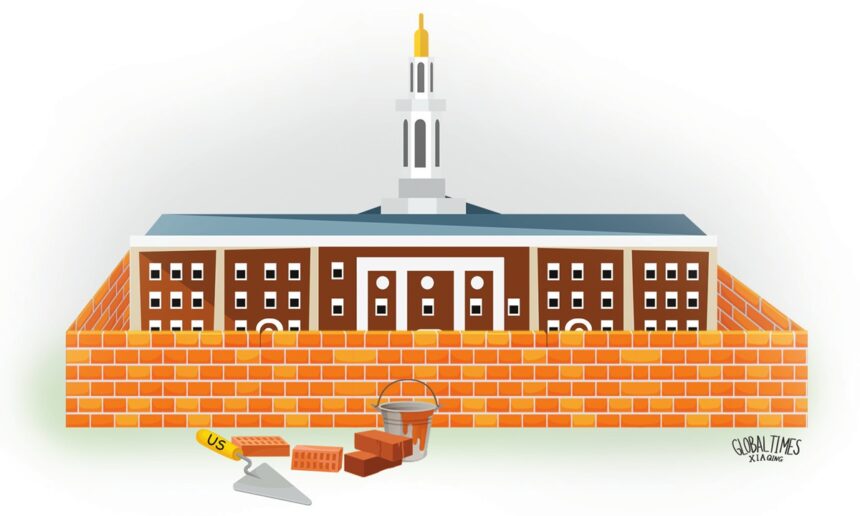By Denis Simon
In an unprecedented move, the US government has barred Harvard University from enrolling international students. Approximately 6,800 international students are currently enrolled at Harvard University and risk losing their legal status. This decision marks a radical departure from the foundational principles that have made American higher education a global beacon for talent, innovation and academic excellence. While ostensibly targeting one institution, this action threatens the integrity of the US higher education system, undermines America’s global influence and sends shockwaves across international student communities worldwide.
Harvard’s global partnerships are jeopardized by this decision. Financially, while Harvard has a large endowment, the loss of international student tuition revenue and potential philanthropic contributions from its global alumni could inflict long-term damage. Moreover, the reputational fallout is incalculable: Being the target of such an exclusionary policy undermines Harvard’s global brand as a top-tier academic institution and erodes the trust of current and prospective partners abroad.
From multiple perspectives, this decision sets a dangerous precedent. It signals that even the most prestigious and well-established US institutions are vulnerable to politically motivated interference. Other universities will now be viewed as equally susceptible, setting off alarm bells for current international students and their families, as well as financial supporters and scholarship providers around the world.
American universities rely heavily on international students – not just for tuition revenue, but also for their academic contributions, global perspectives and role in sustaining US graduate programs, particularly in STEM fields. The decision could catalyze a broader decline in international enrollment across the country as students question the reliability and safety of studying in the US. If Harvard is no longer safe for global students, what assurance can other institutions in the US provide?
International students – especially those trained at elite institutions like Harvard – often stay in the US to work, start companies, or contribute to academic and scientific innovation. They are overrepresented in US patents, start-ups and PhD programs. Removing them from the educational pipeline cuts off a crucial source of high-skilled talent. Just ask the people involved in the high-tech sector of the US economy.
Moreover, many of these students occupy key roles in the US workforce after graduation, particularly in healthcare, engineering and technology sectors. Without them, the US risks exacerbating its talent shortages, weakening its global competitiveness and slowing economic growth. It also sends a chilling message to global firms and entrepreneurs about the unpredictability of US policies.
Higher education has long served as a form of soft power for the US. Through its universities, the US has cultivated generations of global leaders, fostered transnational partnerships and extended its influence abroad. It’s also a major US export. International students who study in the US often become informal ambassadors, carrying with them a deep understanding of American values, culture and institutions.
This decision unnecessarily weaponizes education policy, undermining US diplomacy and alienating key allies whose students may now be affected. Countries with large student populations in the US, such as China, India, South Korea and Brazil, may reevaluate bilateral education agreements or promote alternative study destinations. It also gives nations like China, Canada, the UK and Australia an opportunity to attract top-tier students and researchers who no longer feel welcome in the US.
For students around the world considering US universities, this policy introduces a new dimension of risk. It undermines the predictability and stability that are both essential for making multi-year educational investments. Parents and students may begin to favor countries perceived as more stable and welcoming.
Over time, this shift could reduce the quality and diversity of US academic programs, especially in graduate-level education, where international students often form the majority in fields such as engineering and computer science.
The decision to bar Harvard from enrolling international students is both myopic and self-destructive. It inflicts immediate harm on Harvard and long-term damage on the entire American higher education system. Moreover, it compromises US economic and technological leadership, weakens diplomatic ties and cedes ground to global competitors. Most critically, it tarnishes the moral and intellectual leadership that American universities have long represented.
Fortunately, a judge has put a temporary injunction delaying the implementation of the order. If not further challenged, the policy could continue to tarnish the global appeal of US higher education. At a time when global challenges require cross-border collaboration, the US must recommit to openness, excellence and the values that have long made its universities centers of global respect and stature.
The author is a distinguished fellow at the Washington-based Institute for China-America Studies. opinion@globaltimes.com.cn











